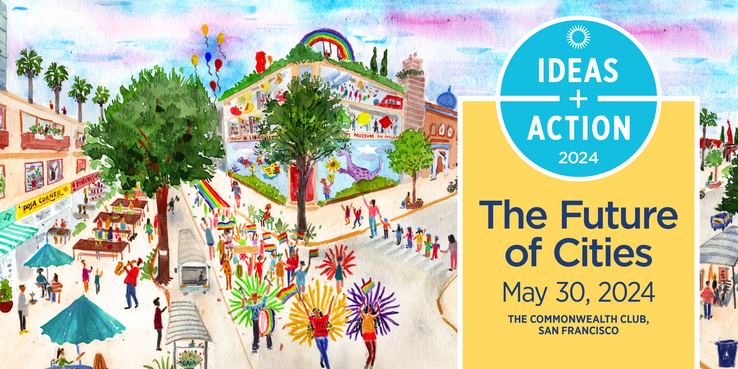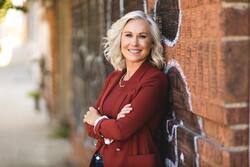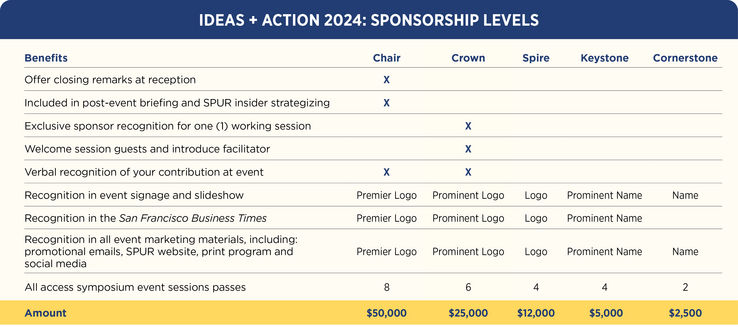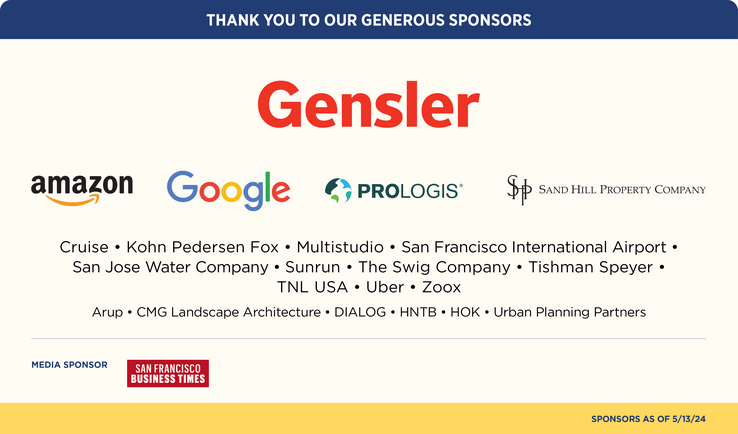Agenda
1 p.m. | REGISTRATION
1:30 p.m. | INTRODUCTION + KEYNOTE
- Jennifer Keesmaat / President and CEO, Collecdev-Markee; Former Chief City Planner, City of Toronto
2:15 p.m. | PANEL CONVERSATION
Can New Cities Be the Right Way to Grow?
Over the next 50 years, the San Francisco Bay Area will gain as many as 4 million people and 2 million jobs. In the last 20 years, the Bay Area has failed to adequately house our population. After a strong period of population growth in our cities, we are now starting to see many low and moderate income households move to the suburbs. Our racial disparities have worsened. And we haven’t figured out how to scale up solutions to shift away from fossil fuels and build and grow more sustainably.
The developers of California Forever in Solano County propose to build a new city from the ground up with urbanist principles: a walkable community with affordable homeownership, accessible jobs, convenient shopping, green buildings, and resilient infrastructure. While this project is new, the idea of new towns is not a novel concept. In fact, many versions of new towns have been built in the United States and around the world. Are new cities part of the solution for accommodating growth? Can it be done equitably and sustainably? What are the implications for communities in existing cities? Can we learn from previous efforts in the United States and abroad? Join us for this engaging conversation, where our participants will grapple with all the thorny questions raised by new towns.
- Alicia John-Baptiste, President and CEO, SPUR
- Jennifer Keesmaat, President and CEO, Collecdev-Markee
- Ellen Lou, Principal, Skidmore, Owings & Merrill (SOM)
- Daniel Rodriguez, Director of the Institute for Transportation Studies and the Chancellor’s Professor of City and Regional Planning, UC Berkeley
3 p.m. | BREAK
3:20 p.m. | BREAKOUT SESSIONS
Join one of the following roundtable discussions with thought leaders from around the Bay Area to find common ground, accelerate action-oriented thinking and tackle some of the biggest challenges facing planning in the region. Learn more about the sessions and panelists on the Breakout Sessions tab.
Session A: Growing Up, Not Out
Session B: Evolving Downtowns
Session C: Creating Inclusive Public Spaces
Session D: Strategies for Equitable Hazard Resilience
Session E: Implementing Emerging Technologies
*Breakout sessions are limited to sponsors and invited guests and subject to change.
5 p.m. | RECEPTION
Continue the conversation over drinks.

 JENNIFER KEESMAAT
JENNIFER KEESMAAT
